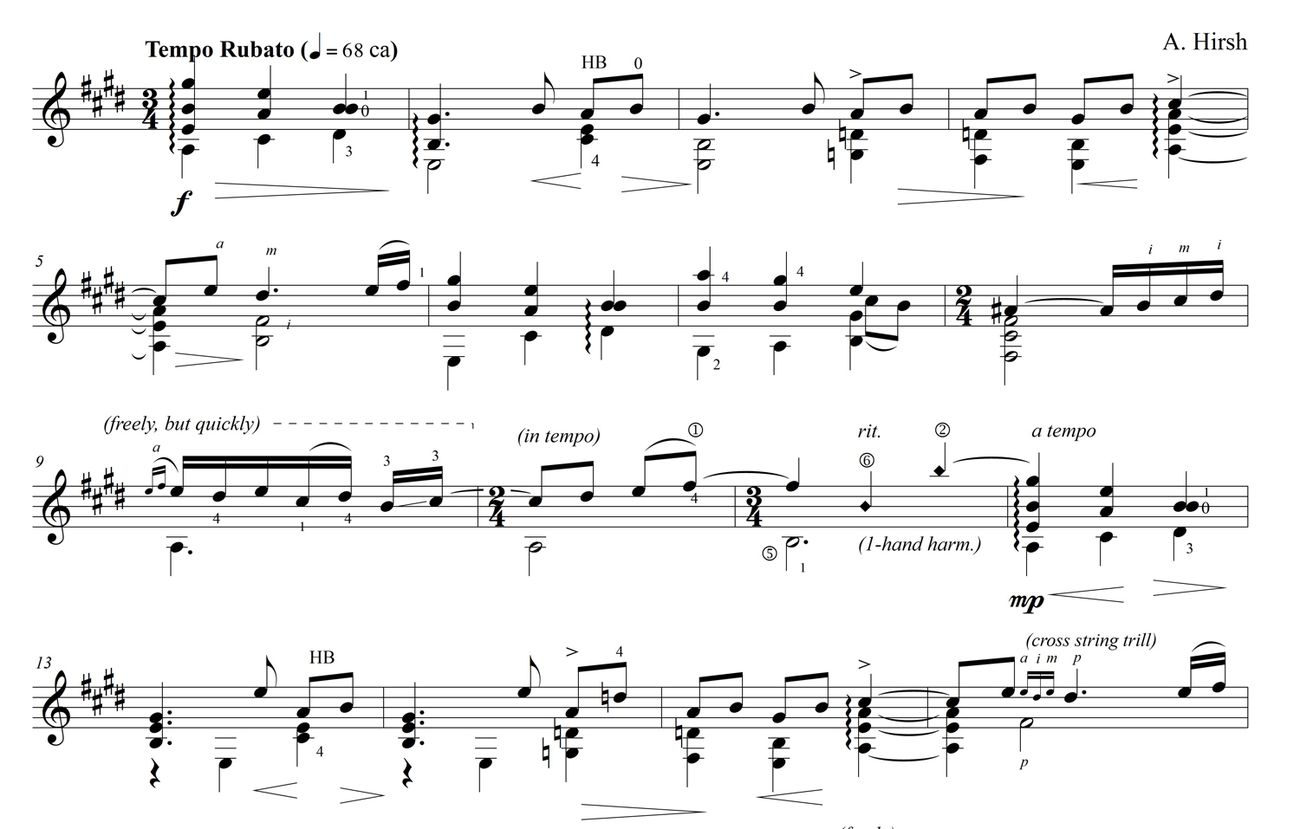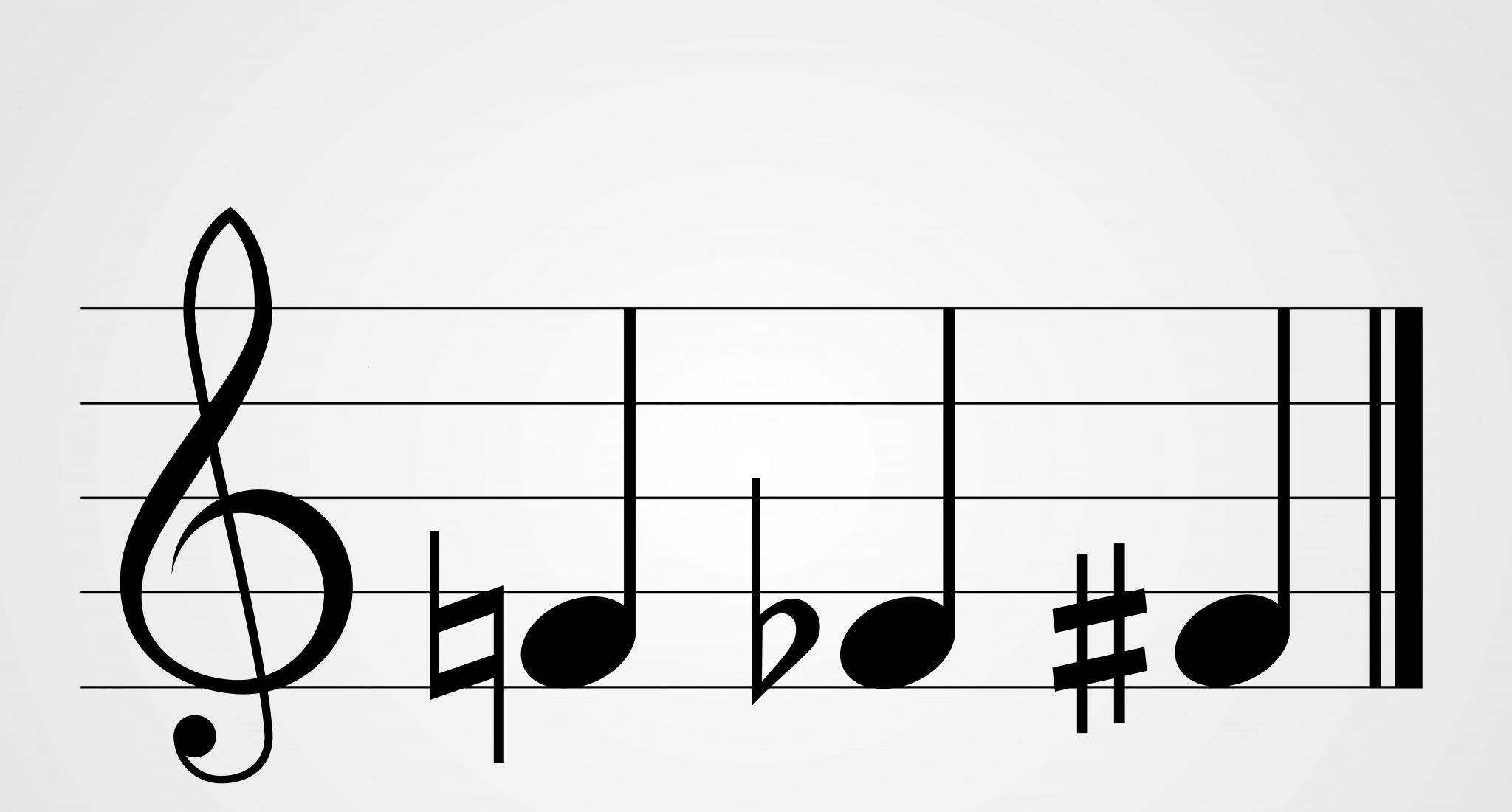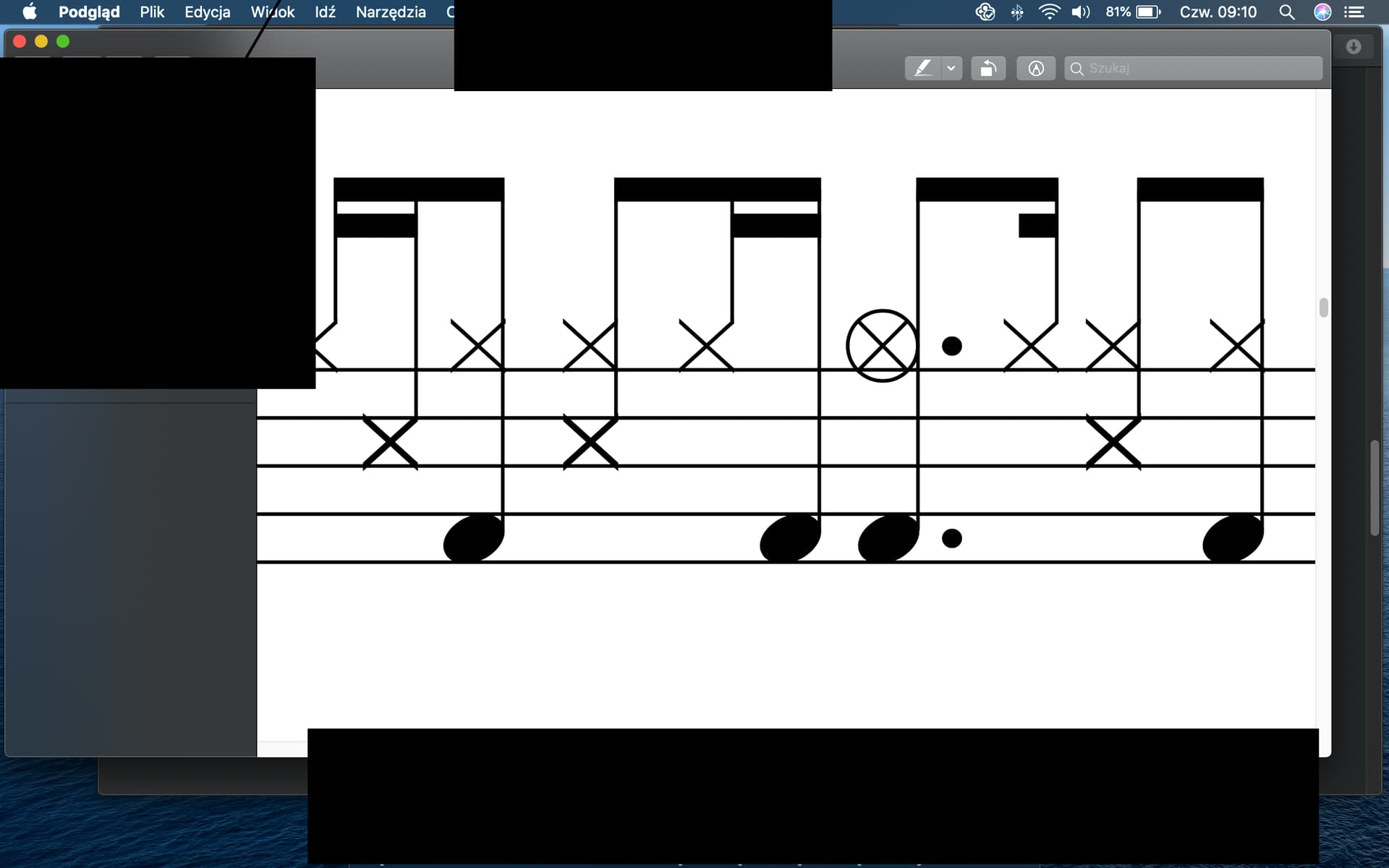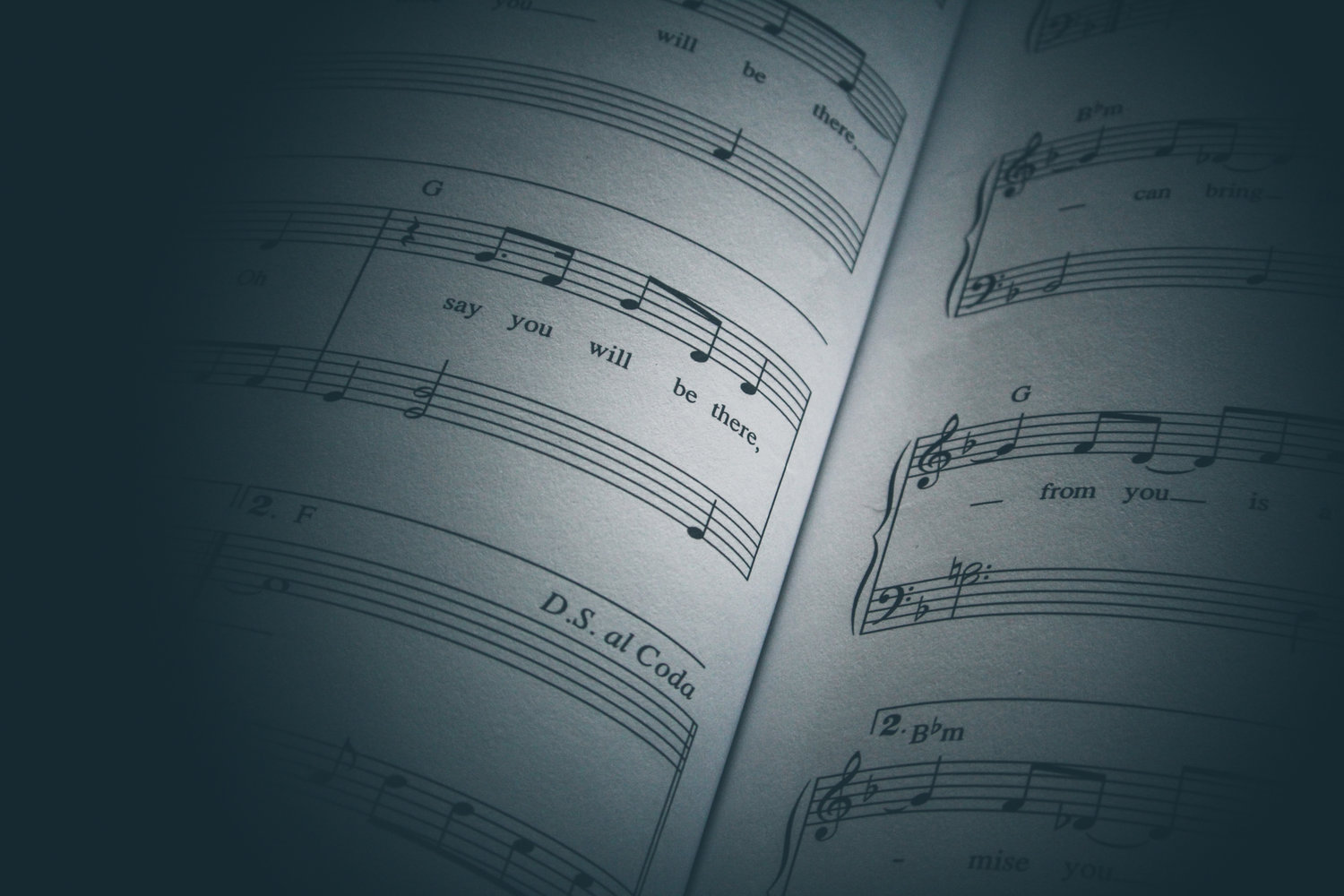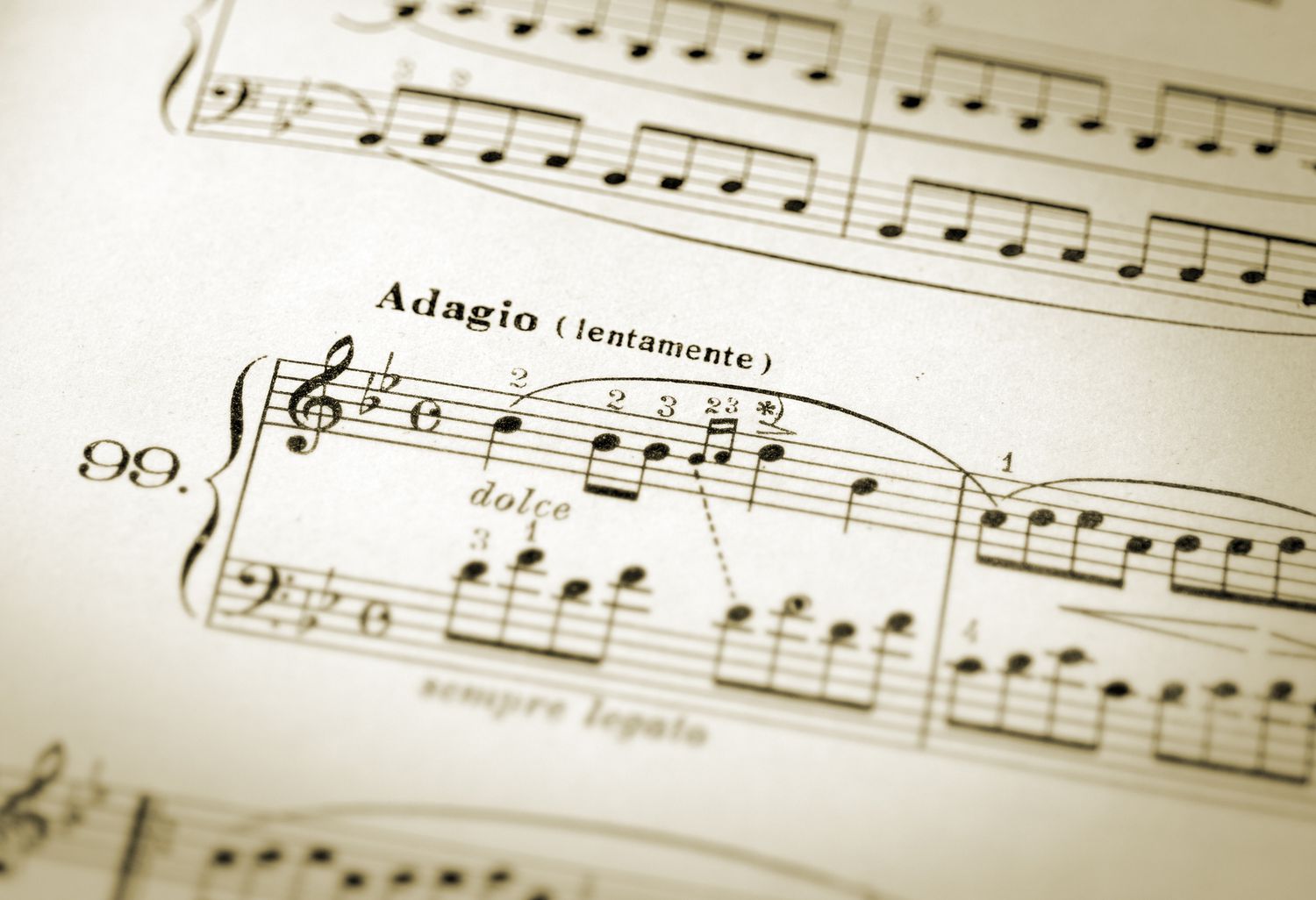Home>Production & Technology>Acoustic>What Does Acoustic Music Mean


Acoustic
What Does Acoustic Music Mean
Published: March 12, 2024
Discover the true essence of acoustic music and its significance in the music industry. Learn what acoustic music means and its impact on listeners.
(Many of the links in this article redirect to a specific reviewed product. Your purchase of these products through affiliate links helps to generate commission for AudioLover.com, at no extra cost. Learn more)
Table of Contents
Introduction
Acoustic music has a timeless allure that transcends generations and musical trends. It evokes a sense of intimacy and authenticity, drawing listeners into its pure and unadulterated soundscapes. In a world inundated with electronic beats and synthesized melodies, acoustic music stands as a testament to the raw power of unamplified sound.
The beauty of acoustic music lies in its simplicity. It strips away the layers of digital manipulation and production, allowing the natural resonance of instruments and vocals to take center stage. Whether it's the gentle strumming of a guitar, the soul-stirring resonance of a cello, or the heartfelt lyrics delivered by a singer-songwriter, acoustic music captures the essence of unembellished artistry.
In an age dominated by technology, acoustic music serves as a reminder of the organic roots of musical expression. It harkens back to a time when music was created and shared in its most authentic form, devoid of auto-tune and digital enhancements. The purity of acoustic music resonates with listeners on a profound level, offering a genuine and unfiltered sonic experience.
As we delve into the world of acoustic music, we embark on a journey that transcends genres and eras. From the folk troubadours of yesteryears to the contemporary acoustic revivalists, the allure of acoustic music continues to captivate audiences worldwide. Its enduring appeal lies in its ability to forge a deep emotional connection, transcending linguistic and cultural barriers to speak directly to the soul.
In the following sections, we will explore the definition, history, characteristics, and significance of acoustic music, shedding light on its profound impact on the musical landscape. Join us as we unravel the rich tapestry of acoustic music, delving into its timeless melodies and the profound emotions it evokes.
Definition of Acoustic Music
Acoustic music encompasses a broad spectrum of musical expressions that are performed using unamplified instruments and natural vocals. It is characterized by the absence of electronic amplification or digital manipulation, allowing the inherent sound of the instruments and voices to resonate authentically. The essence of acoustic music lies in its organic and unembellished nature, capturing the raw emotions and nuances of the performers' artistry.
At its core, acoustic music celebrates the purity of sound, embracing the natural timbres and textures of acoustic instruments such as guitars, pianos, violins, cellos, and various percussion instruments. Whether it's the gentle plucking of strings, the resonant vibrations of wooden bodies, or the subtle nuances of vocal inflections, acoustic music embodies a sonic purity that transcends the boundaries of genre and style.
The unadorned nature of acoustic music allows for an intimate and unfiltered musical experience, fostering a deep connection between the performers and their audience. It creates a space where the authenticity of the music takes precedence, inviting listeners to immerse themselves in the genuine emotions and storytelling woven into each note and lyric.
Acoustic music is not confined to a specific genre; it spans a diverse range of musical styles, including folk, blues, country, jazz, classical, and singer-songwriter compositions. Whether it's the rustic melodies of folk ballads or the soul-stirring resonance of blues guitar, acoustic music embodies a universal language that speaks to the heart and soul of listeners across cultures and generations.
In essence, acoustic music serves as a testament to the enduring power of unamplified sound, preserving the rich traditions of musical expression while embracing the evolving landscape of contemporary artistry. It stands as a timeless reminder of the intrinsic beauty of acoustic instruments and the raw authenticity of unadorned vocals, weaving a tapestry of sonic narratives that resonate with the depths of human emotion.
As we delve deeper into the world of acoustic music, we uncover a rich tapestry of sonic expressions that transcend the limitations of technology, inviting us to embrace the unfiltered beauty of unamplified sound.
History of Acoustic Music
The history of acoustic music is a rich tapestry woven with the threads of cultural traditions, artistic expression, and the evolution of musical instruments. Dating back to ancient civilizations, acoustic music has been an integral part of human culture, serving as a means of storytelling, celebration, and communal bonding.
In ancient times, before the advent of electronic amplification, music was predominantly performed acoustically. From the haunting melodies of ancient flutes to the rhythmic beats of handcrafted percussion instruments, acoustic music resonated through the corridors of history, shaping the cultural identities of diverse societies.
The acoustic guitar, with its origins tracing back to ancient stringed instruments, emerged as a quintessential symbol of acoustic music. Its evolution from the early lutes and ouds to the modern six-stringed acoustic guitar mirrors the progression of acoustic music through the ages. The guitar became a cornerstone of folk music traditions, accompanying poignant ballads and lively dances, and later found its place in blues, country, and rock genres, leaving an indelible mark on the landscape of acoustic music.
In the realm of classical music, acoustic instruments such as the violin, cello, and piano took center stage, showcasing the unparalleled beauty of unamplified sound. The symphonies of Mozart, the concertos of Beethoven, and the sonatas of Chopin reverberated through grand concert halls, captivating audiences with the pure resonance of acoustic instruments and orchestras.
The folk music revival of the 20th century brought acoustic music to the forefront of popular culture, with artists like Bob Dylan, Joan Baez, and Joni Mitchell using acoustic guitars and heartfelt vocals to convey powerful social and personal narratives. This resurgence sparked a renewed appreciation for the raw authenticity of acoustic music, inspiring a new generation of singer-songwriters and acoustic enthusiasts.
In contemporary times, acoustic music continues to thrive, transcending genres and captivating audiences with its timeless allure. From intimate coffeehouse performances to large-scale acoustic concerts, the essence of acoustic music perseveres, offering a sanctuary of unfiltered musical expression in a world inundated with digital soundscapes.
The history of acoustic music is a testament to the enduring legacy of unamplified sound, weaving a narrative that spans centuries and cultures. Its evolution mirrors the evolution of human expression, resonating with the universal language of music and perpetuating the timeless beauty of acoustic instruments and vocals.
As we reflect on the history of acoustic music, we are reminded of its profound impact on the human experience, transcending the boundaries of time and space to resonate with the depths of our emotions and collective heritage.
Characteristics of Acoustic Music
Acoustic music is characterized by a myriad of distinctive traits that distinguish it from its amplified counterparts. These defining characteristics contribute to the timeless allure and emotional resonance of acoustic music, shaping its identity as a pure and unadulterated form of musical expression.
-
Unamplified Sound: At the heart of acoustic music lies the absence of electronic amplification. The natural resonance of acoustic instruments and vocals takes precedence, allowing the nuances of sound to unfold organically. This unamplified quality creates an intimate sonic experience, drawing listeners into the raw authenticity of the music.
-
Emotional Authenticity: Acoustic music embodies a profound sense of emotional authenticity. Whether it's the plaintive strumming of a folk guitar or the soulful resonance of a cello, acoustic instruments convey raw emotions with unparalleled sincerity. The unembellished nature of acoustic music allows for unfiltered storytelling, inviting listeners to connect with the genuine sentiments woven into each note and lyric.
-
Organic Texture: The organic texture of acoustic music resonates with a warmth and depth that is inherently captivating. From the rich timbres of wooden instruments to the subtle harmonics of unamplified vocals, acoustic music exudes a natural and unprocessed sonic texture. This organic quality creates a sonic tapestry that is both comforting and evocative, enveloping listeners in a cocoon of unadorned beauty.
-
Intimate Performance: Acoustic music thrives in intimate settings, fostering a direct and personal connection between the performers and their audience. Whether it's an acoustic set in a cozy café or an unplugged performance in a living room, the unamplified nature of acoustic music creates an atmosphere of closeness and immediacy. This intimate setting allows for a shared experience, where the nuances of the music are palpably felt by both performers and listeners.
-
Versatility Across Genres: Acoustic music transcends genre boundaries, adapting seamlessly to diverse musical styles. From the earthy melodies of folk and the poignant narratives of singer-songwriters to the intricate compositions of classical acoustic ensembles, acoustic music showcases its versatility across a spectrum of genres. This adaptability underscores the universal appeal of acoustic music, resonating with listeners across cultural and stylistic landscapes.
-
Simplicity and Elegance: The simplicity of acoustic music is inherently elegant, embracing a less-is-more ethos that highlights the intrinsic beauty of unamplified sound. Whether it's a solo acoustic performance or an ensemble of acoustic instruments, the elegance of acoustic music lies in its unpretentious nature. This simplicity allows for a focus on the purity of musical expression, transcending the complexities of modern production and technology.
In essence, the characteristics of acoustic music converge to create a sonic tapestry that is steeped in emotional depth, organic authenticity, and universal resonance. These defining traits underscore the enduring appeal of acoustic music, offering a timeless refuge of unfiltered musical expression in an increasingly digitized world.
Popular Acoustic Instruments
Acoustic music is enriched by a diverse array of instruments that contribute to its rich sonic tapestry. These instruments, revered for their unamplified resonance and organic timbres, play a pivotal role in shaping the evocative melodies and heartfelt narratives that define acoustic music. From the rustic charm of the acoustic guitar to the soul-stirring resonance of the cello, each instrument brings a unique voice to the world of acoustic music.
-
Acoustic Guitar: The acoustic guitar stands as an iconic symbol of acoustic music, revered for its versatility and emotive expressiveness. Whether it's the gentle fingerpicking of folk ballads or the rhythmic strumming of blues and country tunes, the acoustic guitar weaves a melodic thread that resonates with audiences across genres and generations. Its wooden body and steel or nylon strings produce a warm and resonant sound, making it a cornerstone of acoustic ensembles and solo performances.
-
Piano: The acoustic piano, with its timeless elegance and expansive tonal range, holds a revered place in the realm of acoustic music. From classical compositions to contemporary ballads, the piano's expressive dynamics and harmonic depth imbue acoustic music with a sense of grandeur and emotional poignancy. Its rich timbre and nuanced touch allow for intricate melodic phrasing and evocative chord progressions, making it a beloved instrument in acoustic ensembles and solo recitals.
-
Violin: The violin, with its soaring melodies and emotive resonance, adds a touch of classical sophistication to acoustic music. As the lead voice in string ensembles and chamber orchestras, the violin's expressive capabilities evoke a spectrum of emotions, from tender melancholy to exuberant jubilation. Its delicate yet powerful sound weaves intricate melodic motifs and soaring arpeggios, enriching the sonic landscape of acoustic music with its timeless allure.
-
Cello: The cello, with its deep and sonorous voice, infuses acoustic music with a soul-stirring resonance that resonates with profound emotional depth. Whether it's the mournful strains of a lament or the triumphant swells of a concerto, the cello's evocative timbre adds a layer of emotional gravitas to acoustic ensembles and solo performances. Its expressive range spans from velvety warmth to resounding power, creating a captivating presence in the realm of acoustic music.
-
Flute: The flute, with its ethereal melodies and crystalline tones, lends a delicate and enchanting quality to acoustic music. Whether it's weaving intricate embellishments in classical compositions or evoking pastoral imagery in folk tunes, the flute's lyrical expressiveness adds a whimsical charm to acoustic ensembles and solo performances. Its agile and airy timbre creates a sense of serenity and grace, enriching the sonic palette of acoustic music with its evocative presence.
In essence, these popular acoustic instruments form the bedrock of acoustic music, infusing its melodies and harmonies with a timeless resonance and emotional depth. Their unamplified voices resonate with authenticity and organic beauty, shaping the captivating narratives and evocative soundscapes that define the enduring allure of acoustic music.
Importance of Acoustic Music
Acoustic music holds profound significance in the musical landscape, serving as a timeless testament to the enduring power of unamplified sound. Its importance resonates on multiple levels, encompassing cultural, emotional, and artistic dimensions that enrich the human experience.
At its core, acoustic music preserves the authenticity of musical expression, fostering a deep connection between performers and listeners. In an era dominated by digital production and auto-tuned perfection, acoustic music stands as a sanctuary of unfiltered artistry, where the raw emotions and storytelling prowess of musicians take center stage. This unadorned authenticity cultivates a sense of intimacy and vulnerability, inviting audiences to engage with the genuine sentiments and unvarnished beauty of acoustic music.
Furthermore, acoustic music serves as a bridge to cultural heritage, preserving traditional musical forms and instruments that have shaped diverse societies across the globe. From the haunting melodies of ancient flutes to the rustic charm of folk ballads, acoustic music embodies the sonic tapestry of human history, weaving a narrative that transcends temporal and geographical boundaries. It honors the legacy of acoustic instruments and oral traditions, ensuring that the rich heritage of unamplified sound endures for future generations to embrace and cherish.
Emotionally, acoustic music holds the power to evoke profound sentiments and stir the depths of the human soul. Its unembellished resonance and organic textures create a sonic landscape that resonates with the universal language of emotions, transcending linguistic barriers to communicate directly with the heart. Whether it's the bittersweet strains of a melancholic melody or the uplifting cadence of a jubilant tune, acoustic music has the capacity to elicit a spectrum of feelings, offering solace, inspiration, and catharsis to listeners across cultures and generations.
Artistically, acoustic music embodies a purity of sound that transcends the constraints of technological embellishments, emphasizing the intrinsic beauty of unamplified instruments and vocals. It celebrates the nuanced artistry of musicians, highlighting their skill, creativity, and dedication to their craft. Acoustic music encourages a deeper appreciation for the subtleties of musical expression, fostering an environment where the authenticity of sound takes precedence over commercialized trends and digital enhancements.
In essence, the importance of acoustic music lies in its ability to preserve the essence of unadorned artistry, honor cultural heritage, evoke profound emotions, and celebrate the purity of musical expression. It stands as a timeless testament to the enduring allure of unamplified sound, weaving a sonic narrative that resonates with the depths of human experience and enriches the fabric of musical traditions.
Conclusion
In conclusion, acoustic music stands as a testament to the enduring power of unamplified sound, preserving the authenticity of musical expression and honoring the rich heritage of acoustic instruments. Its timeless allure transcends cultural and stylistic boundaries, resonating with audiences on a profound emotional level. The unadorned beauty of acoustic music fosters a sense of intimacy and vulnerability, inviting listeners to immerse themselves in the raw emotions and storytelling prowess woven into each note and lyric.
As we reflect on the history, characteristics, and significance of acoustic music, we are reminded of its profound impact on the human experience. From the haunting melodies of ancient flutes to the soul-stirring resonance of contemporary acoustic ensembles, acoustic music weaves a narrative that transcends temporal and geographical boundaries, speaking directly to the heart and soul of listeners across generations.
The enduring appeal of acoustic music lies in its ability to evoke a spectrum of emotions, from tender melancholy to exuberant jubilation, offering solace, inspiration, and catharsis to audiences worldwide. Its unembellished resonance and organic textures create a sonic landscape that resonates with the universal language of emotions, transcending linguistic barriers to communicate directly with the depths of human emotion.
Artistically, acoustic music celebrates the nuanced artistry of musicians, highlighting their skill, creativity, and dedication to their craft. It encourages a deeper appreciation for the subtleties of musical expression, fostering an environment where the authenticity of sound takes precedence over commercialized trends and digital enhancements.
In essence, acoustic music holds profound significance in the musical landscape, serving as a timeless refuge of unfiltered artistry and a bridge to cultural heritage. Its enduring legacy embodies the purity of sound, the authenticity of expression, and the universal resonance of emotions, perpetuating the timeless beauty of acoustic instruments and vocals. As we embrace the unadorned beauty of acoustic music, we embark on a journey that transcends genres and eras, celebrating the enduring allure of unamplified sound and the profound emotions it evokes.

